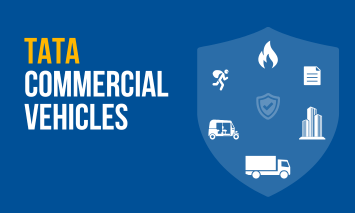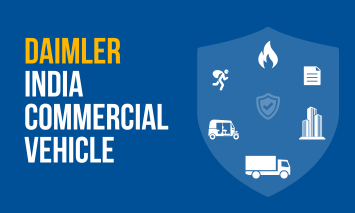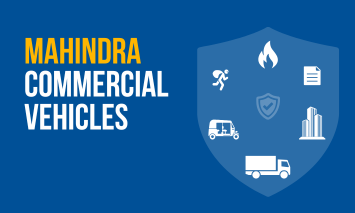What Is Franchising?
Apr 09, 2025 • 3 Min Read
The dynamics of businesses are continuously changing, and entrepreneurs are seeking innovative strategies to increase their revenue streams. One such strategy that has attained significant popularity over the years is "Franchising."
In this blog, we will explore the intricacies of franchising, from its benefits and types to some success stories and market trends.
Introduction to Franchising
Before we explain what franchising is, first, understand its two important terms, i.e., "franchisor" and "franchisee."
- The term "franchisor" refers to a company that allows individuals to run a business under their own name. On the other hand, the "franchisee" is a person who purchases a franchise for the sale of goods or the operation of a service.
Franchising is a business model where one entity (the franchisor) grants another party (the franchisee) the rights to use its brand name, business model, and processes in return for fees and royalties.
Benefits of Franchising
- Proven business model: When you understand what is franchising and plan to get one, you're investing in a business model that has already been successful elsewhere. This, in turn, will benefit the franchisee, as they don't have to figure everything out from the beginning, which eventually reduces risk by lowering the failure rate.
- Business assistance: This is one of the significant benefits of franchising. How? The franchisee will get support or assistance from the franchisor, which can be invaluable when taking on a new business venture.
- Brand recognition: Franchises often come with well-known brand names. Customers already know and trust the brand, making it easier to attract them to your business.
- Opportunities to grow: Franchise agreements often include options for expansion, allowing franchisees to open multiple locations and grow their business over time.
Types of Franchises
Now that we have understood what is a franchise business is and its benefits, let's have a look at its various types.
- Investment Franchise: Investment Franchise involves a lot of larger-scale investments and management responsibilities. Here, the franchisee must be a corporate investor and have significant commercial experience in the same or a similar sector.
- Examples: Hotels and big restaurants
- Job Franchise: It is a home-based franchise business with a low-investment venture. The job franchise is operated by a single person who wants to provide products or services in a specific industry.
- Examples: Travel agencies, shipping services, cleaning services, event planning, etc.
- Product Franchise: As the name suggests, product franchises are based on supplier-dealer relationships, in which the franchisee distributes the franchisor’s products and services.
- Examples: Large product dealers, including car spare parts, appliances, computers, etc.
- Business Format Franchise: The business format franchise is somewhat similar to product franchises and is among the most profitable franchises. The difference is that here, the franchisee gets everything from the franchisor required for the business, including equipment, premises (if required), training, operational systems, supplier contracts, marketing tools, support, and more.
- Examples: Restaurants, retailing, fitness businesses, etc.
- Conversion Franchise: Last but not least, in the conversion franchise model, the franchisee with an already independent business joins the network of the franchisor's industry. As a result, a modified relationship is built between the franchisor and the franchisee.
- Examples: Electricians, florists, medical clinics, plumbers, etc.
Franchising Process
1. Research & identify your niche: The first step is to figure out what type of franchise business interests you the most. Research the market and consider industries that have the most growth potential.
2. Find a franchisor: Once you've identified your niche, start looking for franchisors in that industry who offer franchise opportunities in India.
3. Complete formalities: After selecting a franchisor, you'll need to complete formalities with the Ministry of Corporate Affairs. If the franchisor is based outside India, you may need to work with international brokers to handle registration formalities.
4. Licensing: Setting up a franchise business in India requires obtaining several licenses to operate legally. So, after proper research, apply for the necessary permits and licenses and kickstart your franchise business operations.
Franchising vs Traditional Business
Both franchising and traditional business come with their advantages and disadvantages.
If you're someone who enjoys being in charge and making all the decisions, then starting your own business might be the right choice.
On the other hand, if you appreciate the benefits of instant brand recognition, ongoing assistance, and access to proven business practices, then buying a franchise could be a better fit.
Legal and Financial Considerations
- The Indian Contract Act,1872 acts as the foundation for franchising agreements. It outlines the rights and responsibilities of both franchisors and franchisees.
- The Indian Trademark Act, 1999 provides legal protection to a franchisor's trademark and ensures that these are not used without permission.
- The Companies Act, 2013 outlines the reporting requirements for companies engaging in franchising activities.
- The Competition Act, 2002 ensures fair competition in the franchising industry.
- The Foreign Exchange Management Act, 1999 governs all the fund transfers related to international franchising.
- The Consumer Protection Act, 2019, protects the consumer rights of people who buy products or services from franchised businesses.
Franchise Market Trends
- Increased adoption of the latest technologies like Generative AI, to improve customer experiences and streamline operations.
- Franchises in sectors like fitness and health are growing due to increased consumer interest in health and well-being.
- Sustainability is becoming a core component of franchise strategies, leading businesses to adopt eco-friendly practices to appeal to environmentally conscious consumers.
- Remote and flexible business models are influencing how franchises manage their workforce, enabling remote collaboration, training, and communication.
- Franchises are exploring opportunities for growth in overseas markets and generating more profits.
Franchise Success Stories
- Subway: It started as a single store and is now dominating global markets. Started by Fred DeLuca and Peter Buck in 1965, Subway has become the world's largest fast-food franchises, with thousands of locations in over 100 countries.
- McDonald's: Ray Kroc's vision transformed a small hamburger stand into the global powerhouse known as McDonald's. This brand's success story exemplifies the franchise industry’s potential for rapid expansion.
- Anytime Fitness: Chuck Runyon and Dave Mortensen co-founded Anytime Fitness in 2002. This 24/7 gym franchise transformed the fitness industry and achieved financial success while helping members lead healthier lives.
Franchise Regulations and Compliance
Franchise regulations and compliance refer to the laws, rules, and standards that govern the franchising industry. Below are some of the key aspects.
- Franchisees in India are obligated to adhere to advertising and marketing laws, ensuring that all promotional materials are accurate, truthful, and compliant with existing regulations.
- Protecting Intellectual Property (IP) is a major priority for franchisors operating in India. Indian law mandates that franchisors safeguard their trademarks, patents, and copyrights by registering them with the proper government authorities.
- Additionally, franchisees must comply with Indian employment laws, covering aspects such as minimum wage, working conditions, and employee benefits.
- Tax and accounting obligations pose significant compliance challenges for both franchisors and franchisees. So, franchisees must comply with Indian tax laws, including the timely filing of tax returns.
Conclusion
Franchising offers individuals a fantastic opportunity to start their entrepreneurship journey with less risk. So, take your time to research different options and find one that fits your goals. And don't forget to protect your investment with Royal Sundaram business insurance to secure your future.



Discover the perfect insurance plan for you!
Get your free quote now!
Get StartedBy Clicking on Get Started, You agree to our Terms and Conditions and override DNC/NDNC registration.
More like this
View more





